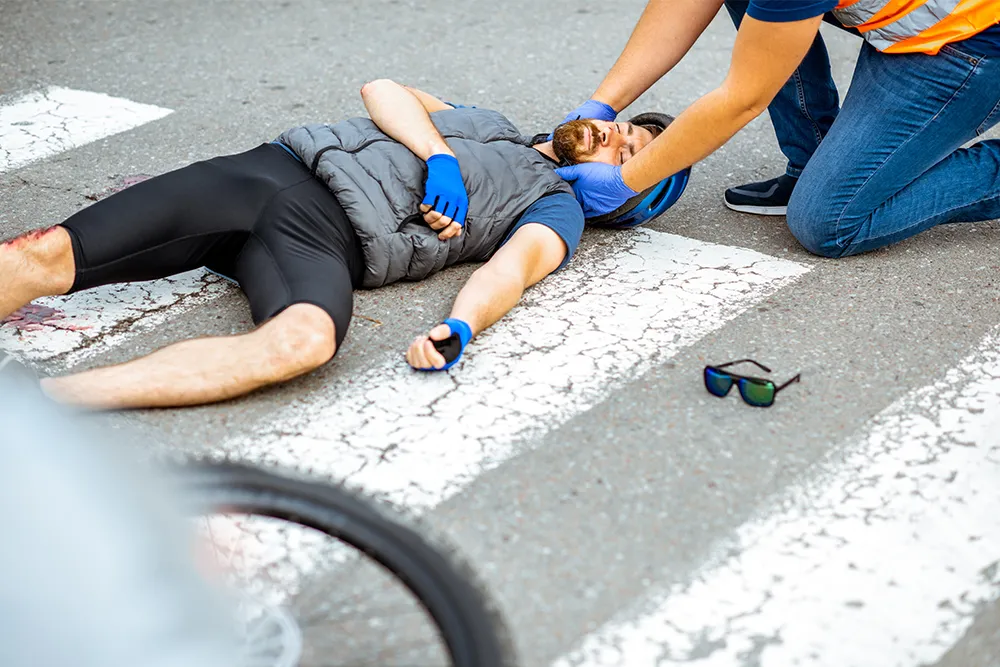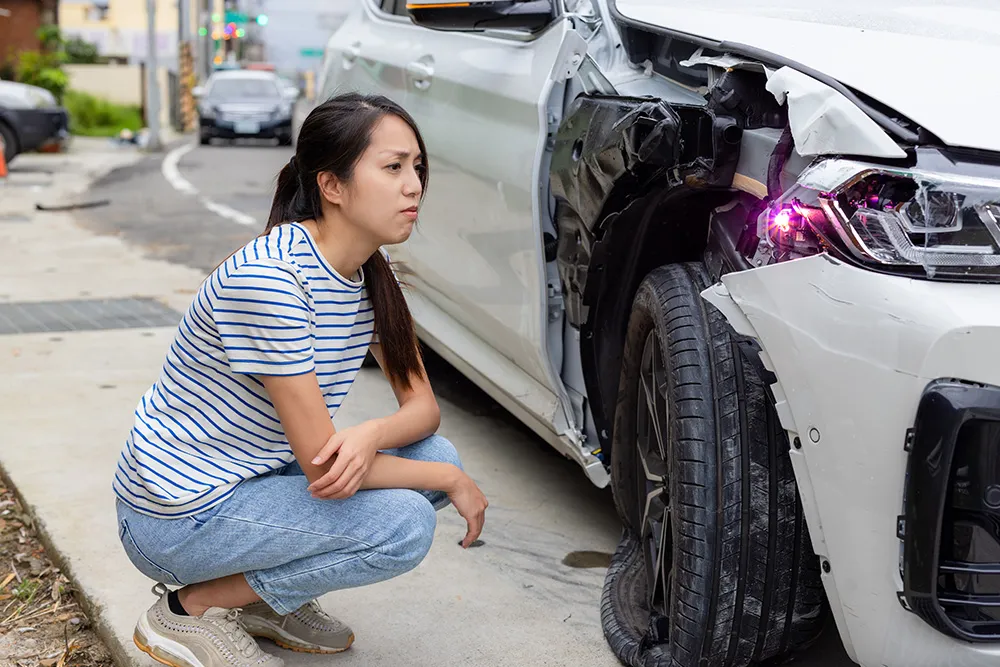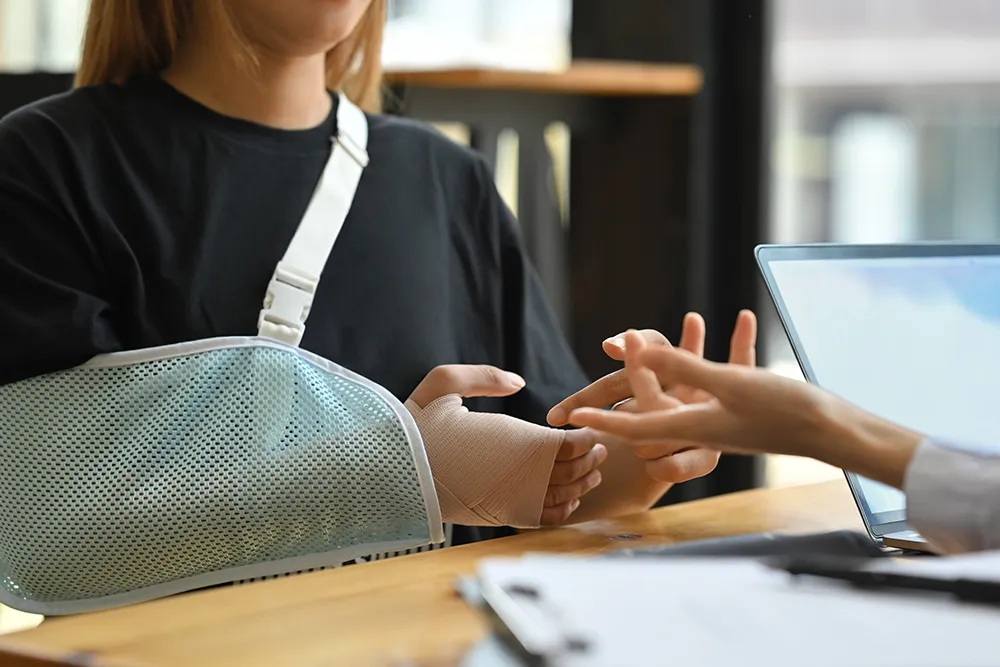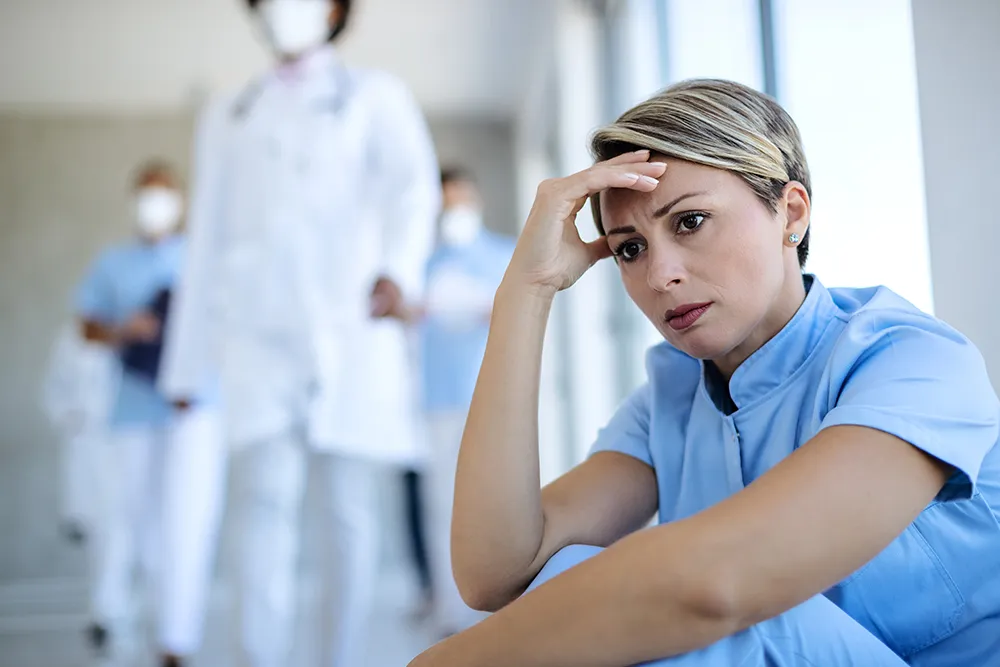Accidents like car collisions, slips and falls, or any other mishap leading to injury can catch us off guard, leaving us scrambling and asking, “Am I liable?” or “Who is liable for an accident?” In Florida, there is a comparative fault system in place, which adds a layer of confusion, as liability is divided based on the degree of fault and how the blame is shared. Beyond the obvious scenarios – texting and causing a car crash, or leaving an aggressive dog unleashed – there are many surprising situations where you could be held responsible for someone’s injuries.
1. Leaving Keys in Your Car Is a Traffic Offense.
Florida law requires you to take steps to secure your unattended vehicle. Failing to do so, could leave you liable for an accident if someone steals your car and crashes it. In Florida, you must turn off the engine, lock the ignition, remove the key from the vehicle, activate the parking brake, and direct your front wheels toward the curb.
2. Heed Attractive Nuisances On Your Property.
Property owners are responsible for maintaining a safe environment, especially when it comes to hazards that might entice children. The question of who is liable for trespassers can get tricky fast, which is why you need to be extra careful with “attractive nuisances” like swimming pools, trampolines, unattended power tools, or appliances that can trap children. To avoid liability, take preventative measures like installing a fence with a self-closing gate, and putting away objects that could cause harm
3. Florida’s Dram Shop Laws Hold Businesses Accountable.
Businesses that serve alcohol, such as bars or restaurants can be held liable for an accident if an intoxicated person they served causes one resulting in injuries. This includes establishments serving underage individuals or those who are visibly intoxicated. If you are the victim of a drunk driving accident, you may have grounds to file a lawsuit against the person who caused the accident and the establishment that served them.
4. The Social Host’s Responsibility.
While Florida’s dram shop laws apply to businesses, social hosts can be held liable for accidents at private gatherings involving alcohol. If a guest who’s been drinking at your party gets hurt, you could be held responsible. However, who is liable should a party-goer leave your property and cause an accident elsewhere? The responsibility still extends to you, especially if the individual you served was a minor, as serving minors is illegal in Florida, and could be used to prove a case of negligence.
5. Burden Of Proof & Its Impact.
Unlike criminal cases where the prosecution must prove guilt beyond a shadow of a doubt, civil accident cases follow a “preponderance of the evidence” standard. The injured party must convince the court it’s more likely than not that the defendant caused the accident. This difference in the burden of proof needed can drastically impact who is liable in accident cases.
6. Vicarious Liability Surprises.
You can be held accountable for someone else’s negligence under the concept of vicarious liability. For example, employers can be held liable for an accident if an employee is negligent while acting within the scope of their employment. Ever wondered who is liable if you lend a car to a friend and they cause an accident? Under vicarious liability laws, you could be held liable for the victim’s injuries, even if you weren’t present.
7. Dog Bites & Owner’s Liability.
In Florida, you’re responsible for any injuries your dog inflicts, regardless of location (public or private property). Your liability can be reduced if you fence in your yard, or display “bad dog” signs, but this doesn’t apply to victims under the age of six. Beyond this, your liability can be reduced if the victim’s negligence contributed to the bite.
Get Legal Advice for Personalized Guidance
At Personal Injury of Florida, our experienced attorneys are dedicated to assisting accident victims in understanding their rights and pursuing fair compensation. Contact us for a free consultation to discuss your case and receive personalized guidance based on your unique circumstances. Remember, accidents happen, but knowing your rights empowers you.
![]() June 20, 2024
June 20, 2024




